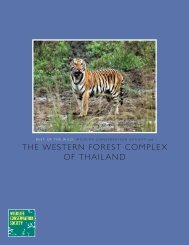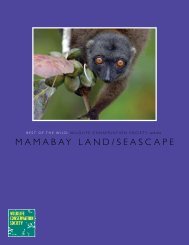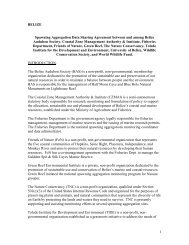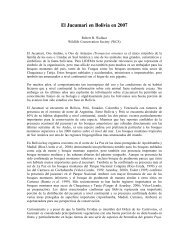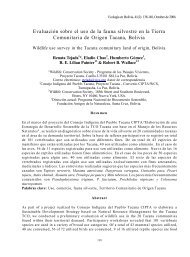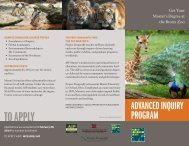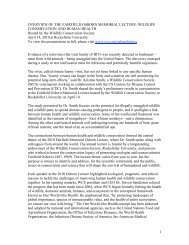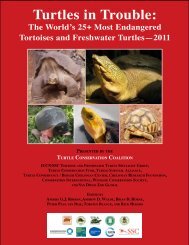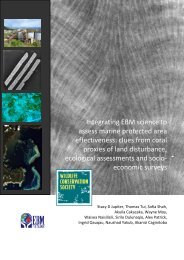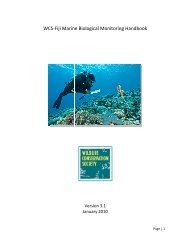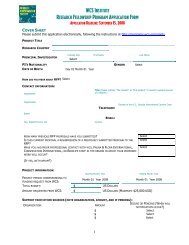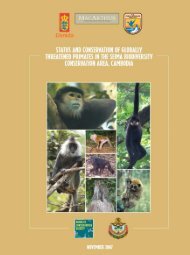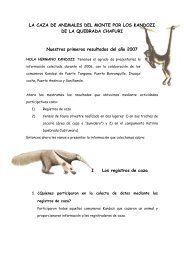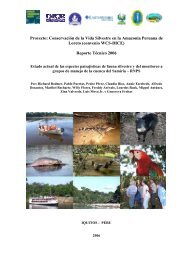RaLand / SeaScape [PDF] - Wildlife Conservation Society
RaLand / SeaScape [PDF] - Wildlife Conservation Society
RaLand / SeaScape [PDF] - Wildlife Conservation Society
- No tags were found...
You also want an ePaper? Increase the reach of your titles
YUMPU automatically turns print PDFs into web optimized ePapers that Google loves.
WCS: Positioned to DeliverBuilding on Fiji’s strong culture of traditional management,WCS has provided scientific leadership to shape theconservation agenda and illuminate how the linkagesbetween ecosystems, species, and society drive successfulconservation.WCS’s team of Fijian staff helped Vatu-i-Ra’s Kubulau district to implementa network that includes 20 community-managed marine protected areas wheresustainable fishing is allowed plus three offshore no-fishing areas. This networkfeatures Fiji’s first no-fishing protected zone and is the only one in Fiji to protect 30%of its traditional management area. Nearby, WCS helped to identify the site for aproposed priority forest reserve, supporting the government’s commitment to protect40% of its remaining natural forest and highlighting the linkages between healthyforests and healthy reefs. With partners, we developed a comprehensive ‘ridge to reef’management plan for Kubulau—the first of its kind for Fiji—that has been endorsedby the Kubulau Council of Chiefs, which is vested with authority over the Seascape’straditional fishing area (see box, p. 9).WCS leverages additional support for Kubulau through conservation finance,business management, and enforcement initiatives. WCS and partners have helpedcommunities generate new revenues by establishing diver entrance fees for theNamena Marine Reserve within Kubulau. With partners, we have also providedtraining, equipment, and vessels to strengthen enforcement of the new protectedarea regulations.Building Fijian conservation leadership is a cornerstone of WCS’s work in Fiji.In addition to providing scholarships to rising Fijiian scientists, WCS hosted theinaugural Fiji <strong>Conservation</strong> Science Forum in 2009 and has supported the use ofprotected area fees to fund local scholarships.With many reef areas still intact and thriving, Fiji faces the challenge of deployingits conservation resources in a cost- and conservation-effective way. WCS’sresearch has helped the government and communities identify national priorityreefs, forests, and ecosystem connectivity sites. Our research is contributing to Fiji’snew National Biodiversity Strategy and Action Plan, an obligation to the Conventionon Biological Diversity which lays out a road map for wildlife conservation inFiji over the next two decades.WCS training programsenable community membersto monitor recovery ofimportant invertebrates,such as giant clams (top),and reef fish populations.Information collected is relayedto community membersduring planning workshops(bottom), where communityleaders make decisions onthe best ways to managetheir natural resources.10


![RaLand / SeaScape [PDF] - Wildlife Conservation Society](https://img.yumpu.com/49974326/12/500x640/raland-seascape-pdf-wildlife-conservation-society.jpg)
